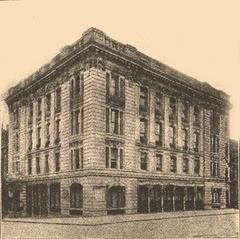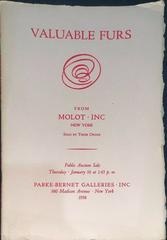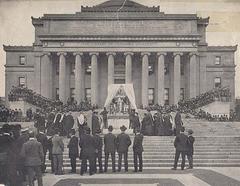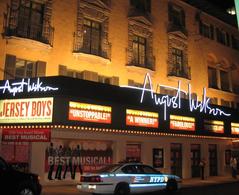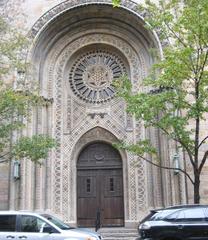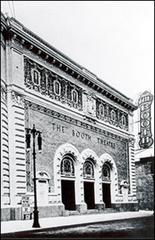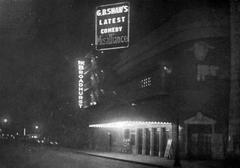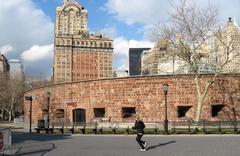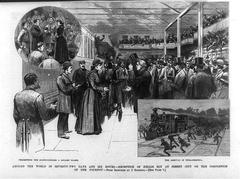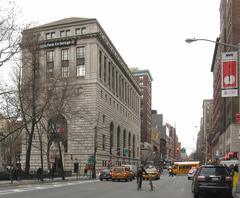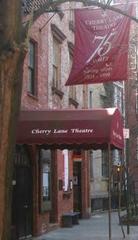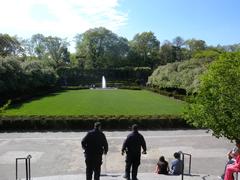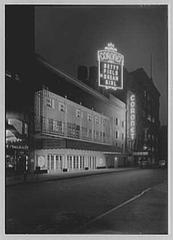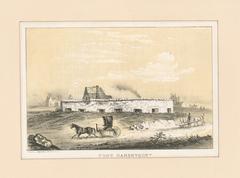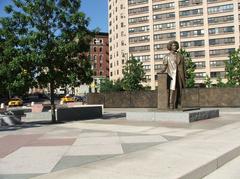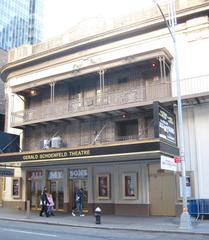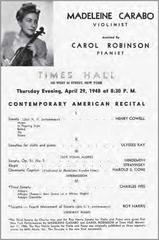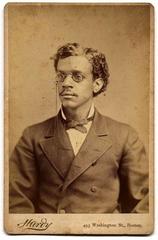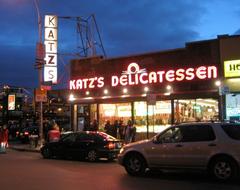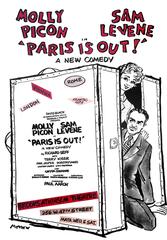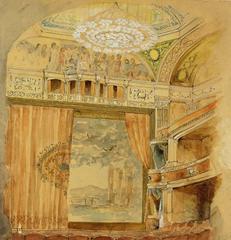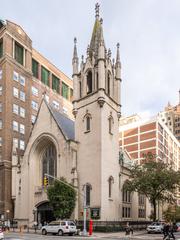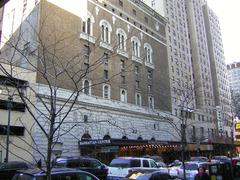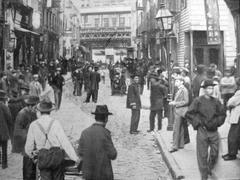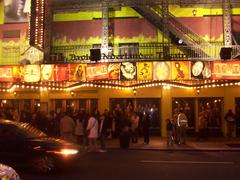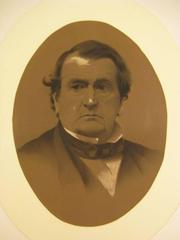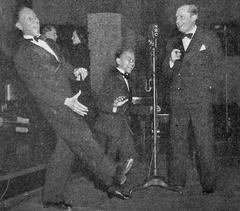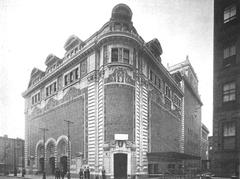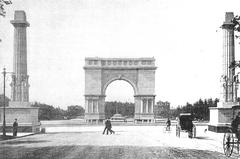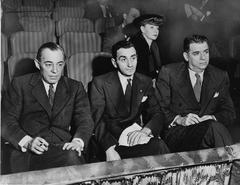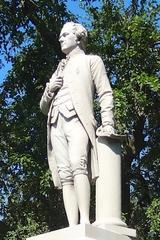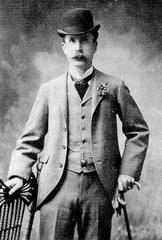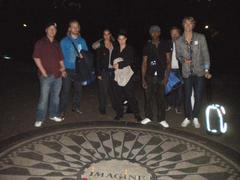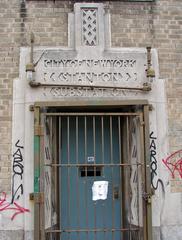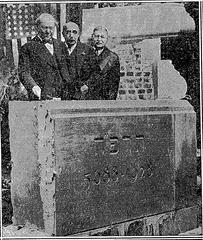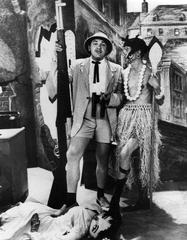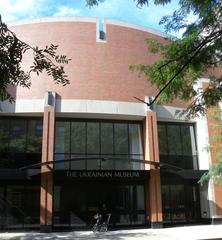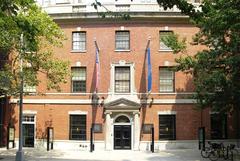Caesars Retreat New York City: Visiting Hours, Tickets, and Historical Sites Guide
Date: 04/07/2025
Introduction
Caesar’s Retreat occupies a unique place in New York City’s storied nightlife and cultural history. Operating from the early 1970s until its closure in 1982, this Roman-themed, high-end massage parlor and brothel was located at 219 East 46th Street in Midtown Manhattan. Founded by Robert Scharaga, a former stockbroker, Caesar’s Retreat became emblematic of the city’s underground nightlife, representing a blend of opulence and discretion for an elite clientele during an era of social and economic upheaval (Wikipedia).
Though no longer open, the history of Caesar’s Retreat offers a window into the broader themes of legality, urban transformation, and shifting public attitudes toward vice and entertainment in 1970s and 1980s New York (History.com). Its legacy continues to inspire cultural homages and educational programming that reflect on Roman grandeur and the enduring influence of Julius Caesar (History is Now Magazine).
This guide provides a comprehensive overview of Caesar’s Retreat’s history, legal and ethical context, practical visitor information, and related cultural experiences in New York City. Whether you are a history enthusiast, a tourist, or a cultural explorer, this article equips you with the knowledge to appreciate this chapter of the city’s nightlife and heritage.
Table of Contents
- Introduction
- History of Caesar’s Retreat
- Legacy and Modern-Day Context
- Legal and Ethical Considerations
- Frequently Asked Questions (FAQ)
- Summary and Conclusion
- Sources & Further Reading
History of Caesar’s Retreat
Early History and Context
Caesar’s Retreat operated at a time when New York City faced significant economic challenges and a burgeoning countercultural nightlife. The establishment, founded by Robert Scharaga, was known for its luxurious interior and discreet services, catering to high-profile clients seeking privacy (Wikipedia). During the 1970s, businesses like Caesar’s Retreat thrived in legal gray zones, reflecting both the permissiveness and the regulatory ambiguities of the era.
Operation and Reputation
The retreat swiftly gained a reputation for its opulent ambiance and high-end service. Sex activist Annie Sprinkle described it as one of the “best brothels in New York City,” and its clientele reportedly included celebrities and executives drawn to its discretion and exclusivity.
Legal Challenges and Closure
Despite efforts to operate discreetly, Caesar’s Retreat was subject to police raids, most notably in October 1972 and again in March 1982. Undercover NYPD operations led to the collection of evidence and the eventual closure of the establishment. Attempts by Scharaga to legally reopen the venue were ultimately denied in court (Wikipedia).
Broader Historical Context
At its height, New York City was the nation’s largest metropolis, with a population nearing 8 million. The 1970s and 1980s were marked by economic hardship, rising crime rates, and the emergence of cultural movements like disco and punk. Efforts to “clean up” New York’s entertainment districts often targeted establishments like Caesar’s Retreat, reflecting broader shifts in public policy and urban development (History.com).
Legacy and Modern-Day Context
Julius Caesar’s Enduring Influence
The name “Caesar’s Retreat” draws on the legacy of Julius Caesar, whose leadership and reforms continue to influence Western governance and leadership philosophies (History is Now Magazine). Modern educational programs and cultural exhibits inspired by Caesar’s legacy highlight his impact on political systems and leadership studies (IJNRD).
Architectural and Artistic Homage
While the original venue is closed, new Roman-inspired destinations in New York pay tribute to Caesar’s legacy through immersive architecture, including marble facades, Corinthian columns, and classical statues. These elements evoke the splendor of ancient Rome and serve as the backdrop for art installations and historical displays (Go Vegas Guide).
Cultural Programming and Educational Initiatives
Modern venues inspired by Caesar’s Retreat offer:
- Lectures and Talks: Sessions led by historians and political scientists on Roman governance and military strategy.
- Themed Events: Seasonal celebrations such as the “Ides of March,” featuring reenactments and interactive workshops.
- Exhibitions: Rotating displays of Roman artifacts, manuscripts, and multimedia presentations on Caesar’s life (History is Now Magazine).
Practical Visitor Information: Hours, Tickets, and Accessibility
- Visiting Hours: Roman-inspired retreats and cultural venues are generally open daily from 10:00 AM to 9:00 PM, with extended hours for special events.
- Tickets: General admission starts at $25, with discounts for seniors, students, and children. Tickets are available online and onsite.
- Accessibility: Facilities provide ramps, elevators, and assistive listening devices.
- Guided Tours: Typically offered twice daily, providing expert historical insights.
Location and Nearby Attractions
Venues inspired by Caesar’s legacy in Midtown Manhattan are close to:
- The Metropolitan Museum of Art
- The New York Public Library
- Central Park
Combine your visit with these landmarks for a rich cultural experience (NYC Tourism).
Wellness and Leisure Offerings
Inspired by Roman traditions, some venues offer spa facilities, tea lounges, meditation rooms, and wellness workshops, providing a tranquil retreat in the city (Go Vegas Guide).
Interactive Experiences
- Augmented Reality Tours: Use digital devices to experience virtual Roman reconstructions.
- Interactive Exhibits: Touchscreens and multimedia displays for in-depth exploration.
- Workshops: Participate in cooking classes or Latin language lessons.
Caesar’s Retreat in Popular Culture
Julius Caesar’s life and legacy are frequently referenced in plays, books, and films. Modern venues host movie nights, book clubs, and festivals to connect ancient history to contemporary culture (Social Studies Help).
Legal and Ethical Considerations
Legal Framework
- 1970s–1980s: Brothels and prostitution were illegal under New York State law. Caesar’s Retreat was raided and shut down for violating these laws (dbpedia.org).
- Current Laws: Prostitution and brothels remain illegal in New York as of 2025. Engaging in or seeking such services carries legal risks (unwto.org).
Ethical Tourism Guidance
- Respect Local Laws: Follow all applicable laws and avoid supporting illegal activities.
- Cultural Sensitivity: Be mindful of the complex social issues surrounding sites like Caesar’s Retreat (thetourism.institute).
- Responsible Storytelling: Engage with the history thoughtfully, avoiding glamorization or trivialization (tourismteacher.com).
Responsible Alternatives
For wellness and cultural experiences, seek out legal retreats, spas, and educational tours that offer rejuvenation and historical insight without ethical dilemmas (roamandthrive.com).
Frequently Asked Questions (FAQ)
Q1: Can I visit the original Caesar’s Retreat today?
A1: No, the original venue closed in 1982 and is no longer accessible. Instead, explore museums and historical tours focused on New York’s social history.
Q2: Are there legal brothels or similar venues in New York City?
A2: No, these remain illegal under current laws.
Q3: How can I learn more about the history of Caesar’s Retreat?
A3: Visit reputable museums, join guided city history tours, and consult academic resources.
Q4: What are some ethical wellness options in New York City?
A4: There are many legal wellness retreats, yoga studios, and spas that offer relaxation and cultural enrichment (roamandthrive.com).
Q5: What should I avoid for responsible tourism?
A5: Avoid supporting illegal activities, respect laws, and maintain sensitivity to the privacy and dignity of individuals connected to historical sites.
Summary Table: Key Legal and Ethical Considerations
| Aspect | Status (1970s–1980s) | Status (2025) | Ethical Guidance |
|---|---|---|---|
| Brothel Operation | Illegal | Illegal | Do not support or seek out illegal establishments |
| Prostitution | Illegal | Illegal | Avoid participation; respect all applicable laws |
| Historical Engagement | N/A | N/A | Use reputable, educational sources |
| Privacy | Protected | Protected | Respect the privacy and dignity of all individuals |
| Wellness Retreats | N/A | Legal | Support ethical, legal leisure and wellness options |
Related Articles
Conclusion
Caesar’s Retreat, while no longer operational, remains a symbol of New York City’s vibrant and complex nightlife history. Its legacy prompts reflection on the interplay between legal enforcement, urban culture, and changing societal values. Modern Roman-inspired venues in New York draw on this heritage to create immersive, educational, and ethical cultural experiences (History is Now Magazine).
As you explore New York City’s historical and cultural sites, prioritize legal and ethical tourism. Engage with museums, guided tours, and wellness retreats that enrich your understanding of the city’s past while supporting responsible travel practices. For the latest updates, ticketing information, and travel tips, download the Audiala app and follow our social media channels.
Sources & Further Reading
- Wikipedia – Caesar’s Retreat
- History.com – New York City History
- New York Genealogical and Biographical Society – New York City: A Historical Overview
- History is Now Magazine – Julius Caesar: The Life and Legacy of Rome’s Greatest Leader
- IJNRD – Julius Caesar Leadership Lessons
- Go Vegas Guide – Things to Do at Caesars Palace
- NYC Tourism – Visitor Information
- UNWTO – Global Code of Ethics for Tourism
- The Tourism Institute – Ethical Tourism Guide
- Tourism Teacher – Ethical Tourism Overview
- Roam and Thrive – Wellness Retreats in New York
- Social Studies Help – Julius Caesar Life and Impact
- Tourism Notes – Cultural Tourism Trends
- JiYu Tour Guide Digest – Importance of Cultural Sensitivity in Tour Guiding
- Forbes – Caesars Palace Times Square
- SL Green – Caesars Palace Times Square Announcement
- dbpedia.org – Caesar’s Retreat















